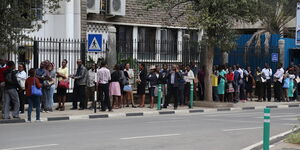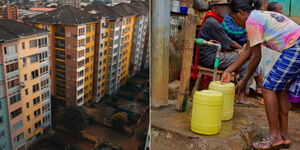Despite being land owners, a majority of Kenyans still lack title deeds, which has been cited as a major problem especially at a time when land grabbing cases are on the rise.
According to a report by the National Crime Research Centre, only 37 per cent of land owners in Kenya have title deeds.
The low number is alarming with experts questioning why these section of Kenyans fail to follow up to have their documents processed.
However, the report specifically points out that it is not the land owners' fault, and instead apportioned the blame on the government.
"Lack of proper legal documents may not entirely be blamed on an individual because registration of title in the land throughout Kenya as per article 67 (2) (c) of the Constitution of Kenya is an obligation of the government," reads part of the report.
The report further points out that some landowners are relying on other forms of documentation to prove ownership such as a written will, lease, share certificate, allotment letter, and sale/purchase agreement.
Per the report, the percentage of land owners with the above documents is 2.5 per cent, 1.4 per cent, 19.0 per cent, 11.3 per cent, and 11.4 per cent respectively.
According to the National Lands Commission draft advisory report published in 2018, less than 30 per cent of Kenya's total area is registered.
"Approximately 4.06 million title deeds were registered countrywide accounting for 8,346,081.99 hectares of land registered," reads the report in parts.
The Report of Baseline Survey on Land Related Crimes Kenya recommended that the relevant state departments and agencies expedite the process of land registration and issuance of land ownership documents.
In the report, it was disclosed that most Kenyans acquired land by either through buying or inheritance. Other ownership channels cited in the report include; gifting or payment through leasing.
"The study established that the majority of land owners were locals (70.8 per cent), whereas 29.2 per cent were non-locals who acquired land in the locality," read the report in parts.
Further, the report unearthed a gender imbalance in the control of productive assets such as land, citing that men are highly favoured in developing countries like Kenya in relation to land ownership.












